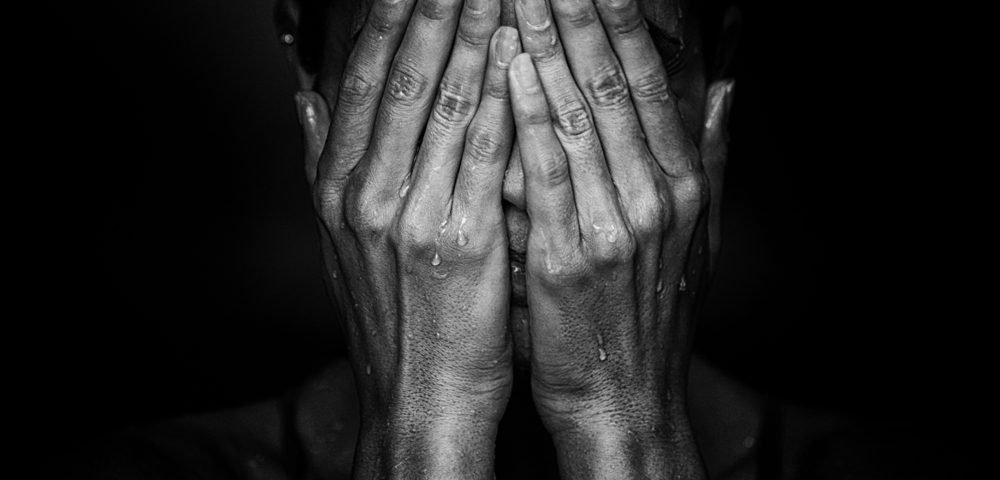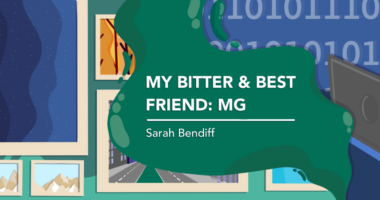It’s OK to Grieve What Myasthenia Gravis Has Stolen

Once upon a time, I was healthy and vibrant, reveling in the promises of the future. There is something so delightful about the naivety of youth. It is unspoiled and untainted by the stains of this world. It thrives in the dreams of tomorrow and the wondrous audacity that nothing will stop you as you reach for your dreams — the bigger, the better.
The period I last felt carefree and enjoyed being young and silly feels like a different lifetime.
The memories call to me and lap at my consciousness, but I rarely acknowledge their presence anymore. Sometimes, they bring a big smile, but they also conjure up the ghosts of another time; they usher in that inevitable longing for a life that is no longer my own.
Life is full of changes and unexpected detours, but precious few are quite so devastating as the loss of your health and identity. No one really talks about that when you get diagnosed with a rare disease.
Myasthenia gravis changed everything for me. Friends ebbed and flowed, I said goodbye to my dream career, romances fell away, and every day hung in the air like an unanswered question. I never knew what to expect other than the unexpected, and I grappled with my health openly while privately I felt like I was sinking emotionally.
Emotional grief is not a comfortable topic, and everyone has their perspective on how life with a rare disease should look. I quickly learned that being honest and raw about your emotional health was taboo and decidedly controversial, which drove me to stay quiet about the expression of my very human emotions that I had not colored in a more positive, happy light.
One thing was made keenly clear to me: My grief and loss over who I was and what I longed to become was something to be cast aside for a caricatured new normal that no one could ever define, yet became the golden standard. I wasn’t allowed to feel the struggle; I was to subdue it by not letting MG win, by staying positive, or dismissing my pain by remembering that others have it worse.
As I watched my friends and peers move on with their lives, get married, travel, start careers, have children, make new friends, and build upon their dreams, I was supposed to be content on the sidelines, cheering the world on as it sped by without me.
Yes, our lives change and we adjust as best we can. We work hard to carve out a new life, but it is never the same. How could it be?
MG makes life unpredictable. For so many, it’s a roller coaster that we learn to find joy and hope in, in spite of all woes. But even with those peaks, the disease changes us. It’s OK to grieve your dreams, your plans, all of the missed opportunities, and carefree spontaneity of a life without calculated activities and planned rests. It’s OK to grieve unexpected emergencies, missed big events, and the inability to be the parent or spouse or leader you long to be.
Our humanity cries out to be heard in all of it’s wondrous, complicated flaws. We deserve the chance to be honest about the struggle, even when the subject matter gets heavy, to be loved unconditionally at our weakest moments, to be walked with through the ups and downs. We don’t deserve empty platitudes or dismissive denial about the journey we have endured.
Hear and affirm my pain and then help me find my joy again. Sit with me in the darkness and then dance with me in the light.
Because once upon a time, I was just like you.
***
Myasthenia Gravis News is strictly a news and information website about the disease. It does not provide medical advice, diagnosis or treatment. This content is not intended to be a substitute for professional medical advice, diagnosis, or treatment. Always seek the advice of your physician or other qualified health provider with any questions you may have regarding a medical condition. Never disregard professional medical advice or delay in seeking it because of something you have read on this website.







Pierre Clement
Thank you for this article and your willingness to share your feelings. You've stated how I feel and have not been able to find the words to express this very difficult part of the MG new me.
Lonnie
Very Good.
laura shanko
Thank you for sharing. I printed this to share with family members. I have so many feelings and emotions and don't know how to share them without freaking people out. Because your right people do not really want to know how bad your doing. They just want to hear your doing fine and moving on with a whole new version of your life.
Ronald Perez
Normal, healthy people do not understand the struggle to get through the day. I have no death wish, but I feel that I have to say that at times dying has begun to look better than this 4 year struggle. I pray and pray, but each day without a sign of remission causes my hope to fad just a bit more. Like this wonderful essay, I too grieve for a life that used to be, but is no more.
Danielle Palmer
Thank you for writing this and sharing it.
I haven’t had my disease process - loss of identity- but into words so beautifully. It was incredibly therapeutic (and this coming from a therapist!)
Bob Beckman
I have never read something that describes our life as you have done. I am so sorry for what has happened to you, at least mine came on late in life and I had a chance too do some of the things I wanted to do. My sons and daughters wonder what has happened too me. I was always the one that fixed stuff and went hunting and fishing now I can hardly shave and brush my hair. I feel you haven’t had a chance and I hate that for you. When I get down I will think of you and how lucky I am to have had a shot at life anyway. I wish I knew something that could help you I really do. Bob
Suzanne
Thank you so much for this -- as the others have commented, this deeply captures the sense of grief, overwhelm, and isolation in the midst of MG. Nearly everyone would rather hear "i'm fine" than the alternative -- until it's perhaps too late.
The last section reminds me of a beautiful quote by Parker Palmer:
"The human soul doesn’t want to be advised or fixed or saved. It simply wants to be witnessed — to be seen, heard and companioned exactly as it is. When we make that kind of deep bow to the soul of a suffering person, our respect reinforces the soul’s healing resources, the only resources that can help the sufferer make it through."
With you all in solidarity. <3
Timothea Sharpe
I see you and hear you and feel seen and heard by reading words so familiar. I am 75 w/more than 50 yrs on the emotional rollercoaster. I've learned to ride it out--all the mood swaps that go w/ physical ups/downs. Not easy. Challenging?; but, has been possible. I'm thankful I made the decision to stay here. Not easy, but in bits and pieces, glad I stayed. You stay, too. Prozac is good! Therapists are great! Naps are the best Rx!
Suzanne York
How my heart aches for my fomer life. Where has she gone. Everyday is an explosion of emotions, feeling hopeful at times and then knocked to my knees with the reminder. "I'll always be with you" It's a lonely disease.